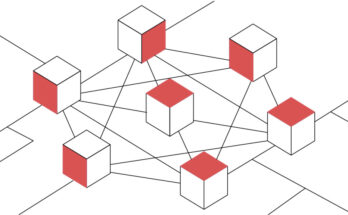In the age of data-driven decisions and digital lifestyles, ensuring the privacy and security of our personal information is paramount. With data breaches and privacy concerns on the rise, exploring innovative solutions is more crucial than ever. Enter blockchain technology, a groundbreaking innovation originally designed for cryptocurrencies but now proving to be a game-changer in safeguarding data privacy. In this article, we’ll uncover the pivotal role of blockchain in supporting data privacy. Whether you’re a privacy-conscious individual, a business owner, or simply curious about the intersection of technology and digital privacy, join us on this journey to understand how blockchain shapes a more secure digital world.
The Privacy Predicament in the Digital Age
Before we dig into the blockchain world, let’s address the pressing issue of data privacy in our digital landscape.
In our interconnected world, every online action leaves a digital footprint. From social media posts to financial transactions, our personal data is stored and shared across the internet. While this connectivity offers convenience, it also exposes us to risks such as data breaches, identity theft, and unauthorized surveillance.
As a result, safeguarding our digital privacy has become a top priority. Enter blockchain technology, which offers innovative solutions to protect our personal information.
Decentralization and Data Privacy
Blockchain’s foundational principle of decentralization is a key driver for data privacy. Let’s explore how this works:
1. Distributed Data Storage
In a traditional centralized system, data is stored in a single location, making it vulnerable to hacking and unauthorized access. Blockchain, on the other hand, distributes data across a network of nodes. Each information is encrypted and stored in multiple locations, ensuring that even if one node is compromised, the entire dataset remains secure.
2. Encryption and Security
Blockchain employs robust encryption methods to secure data. Each block in the blockchain is linked to the previous one through a cryptographic hash, creating an unbroken chain of information. This cryptographic security ensures that data cannot be altered or accessed without proper authorization.
3. User Control
With blockchain, users have greater control over their personal data. Instead of relying on centralized authorities, individuals can manage and grant access to their information directly through decentralized applications (dApps). This user-centric approach empowers individuals to decide who can access their data and under what conditions.
Consent and Data Ownership
Blockchain’s impact on data privacy extends to consent and ownership:
1. Transparent Transactions
Blockchain records every data transaction on a public ledger. This transparency ensures that individuals can track and verify how their data is being used. Any unauthorized or suspicious activity is immediately visible, empowering users to take action.
2. Data Ownership
Blockchain’s self-sovereign identity solutions give users ownership of their personal data. They can selectively share their information with third parties, such as service providers or platforms, without giving up control. This approach prevents data misuse and protects individual privacy.
3. Immutable Records
Once data is recorded on the blockchain, it becomes immutable. This means that historical data cannot be deleted or tampered with. For users, this creates a permanent record of how their data has been handled, ensuring transparency and accountability.
Data Privacy Challenges and Solutions
While blockchain technology offers substantial benefits for data privacy, it is not without challenges:
1. Scalability and Energy Consumption
The current blockchain infrastructure faces scalability issues, often characterized by slower transaction times and high energy consumption. Solutions like sharding and Layer 2 scaling are being explored to address these challenges.
2. Regulatory Compliance
Blockchain’s decentralized nature can create challenges when it comes to regulatory compliance, particularly in industries with stringent data protection laws. Striking a balance between privacy and legal requirements is an ongoing process.
3. User Education
Widespread adoption of blockchain technology for data privacy depends on educating users about its benefits and how to use it effectively. User-friendly interfaces and educational campaigns are essential for success.
Conclusion: A Digital Privacy Renaissance
Blockchain technology is ushering in a digital privacy renaissance, where individuals regain control of their personal information and data transactions become transparent and secure. Blockchain is shifting the balance of power in the digital world by decentralizing data storage, enabling user consent, and ensuring data ownership.
As we navigate an increasingly digital and data-driven society, the need for robust data privacy solutions has never been greater. Blockchain technology offers a path forward, enabling individuals to take charge of their digital lives, protect their personal information, and ensure their data is used to align with their values.
Whether you’re an advocate for data privacy, a business looking to protect customer information, or an individual seeking greater control over your digital presence, exploring the potential of blockchain for data privacy is an essential step toward a more secure and accountable digital future.
The next era of data privacy is upon us, and it’s blockchain-driven. Embrace the shift, protect your digital footprint, and join the movement toward a more private and secure digital world. Your data, rules, and blockchain technology are here to make it happen.




